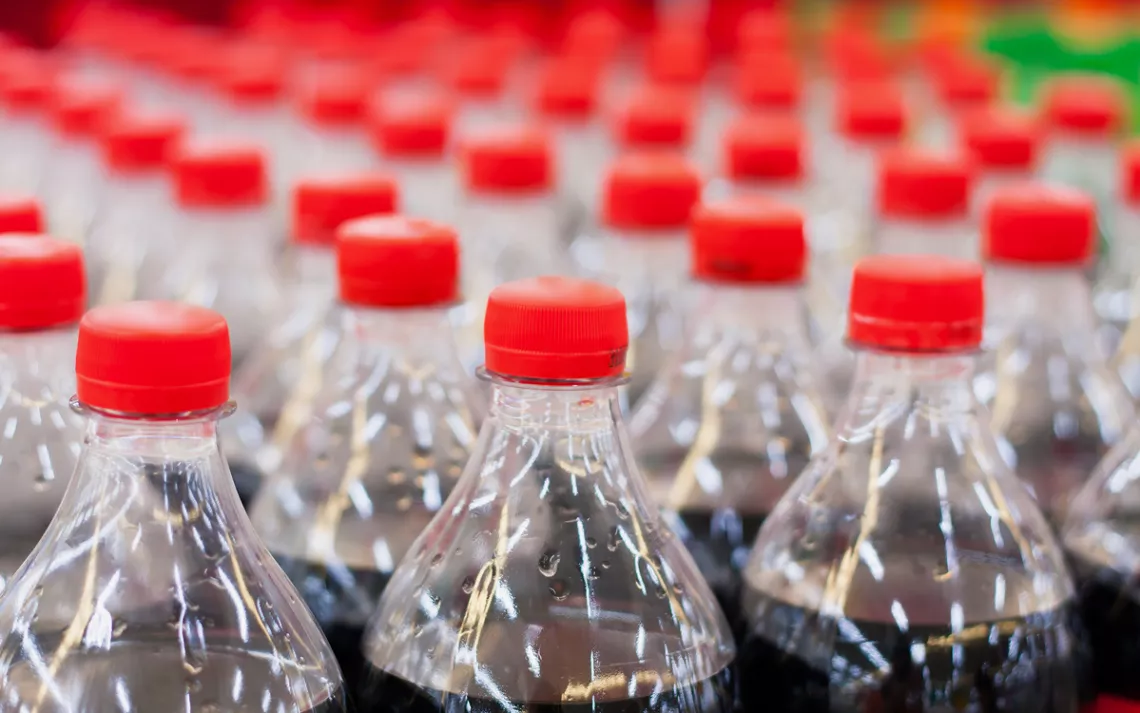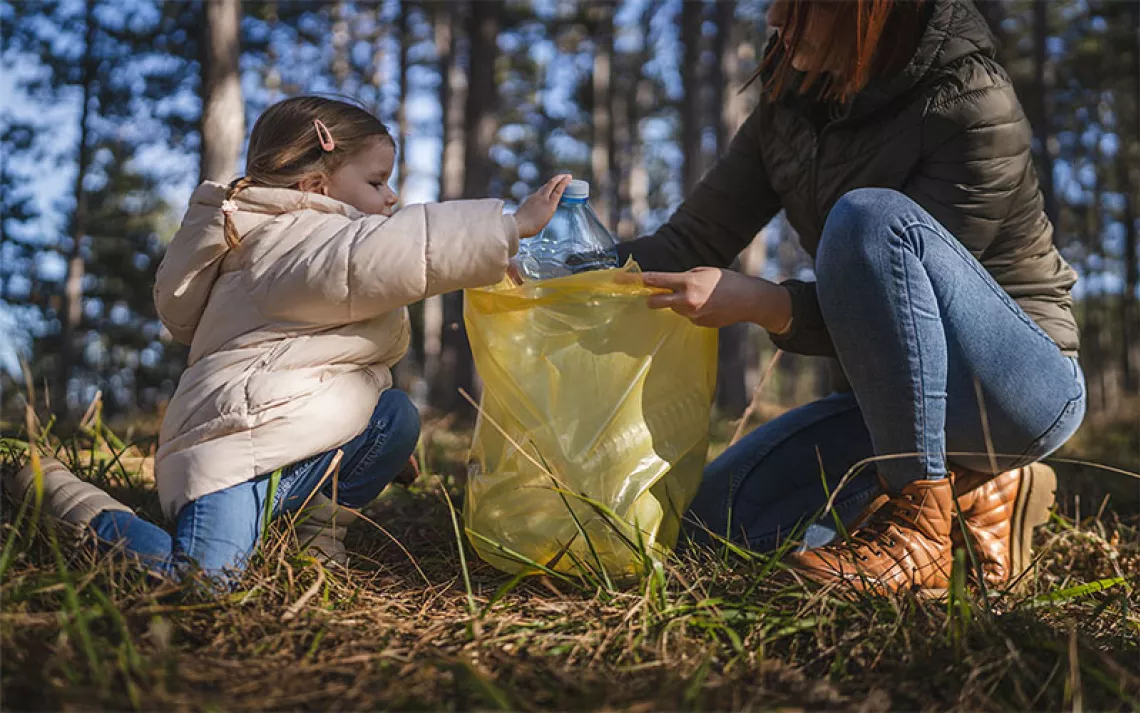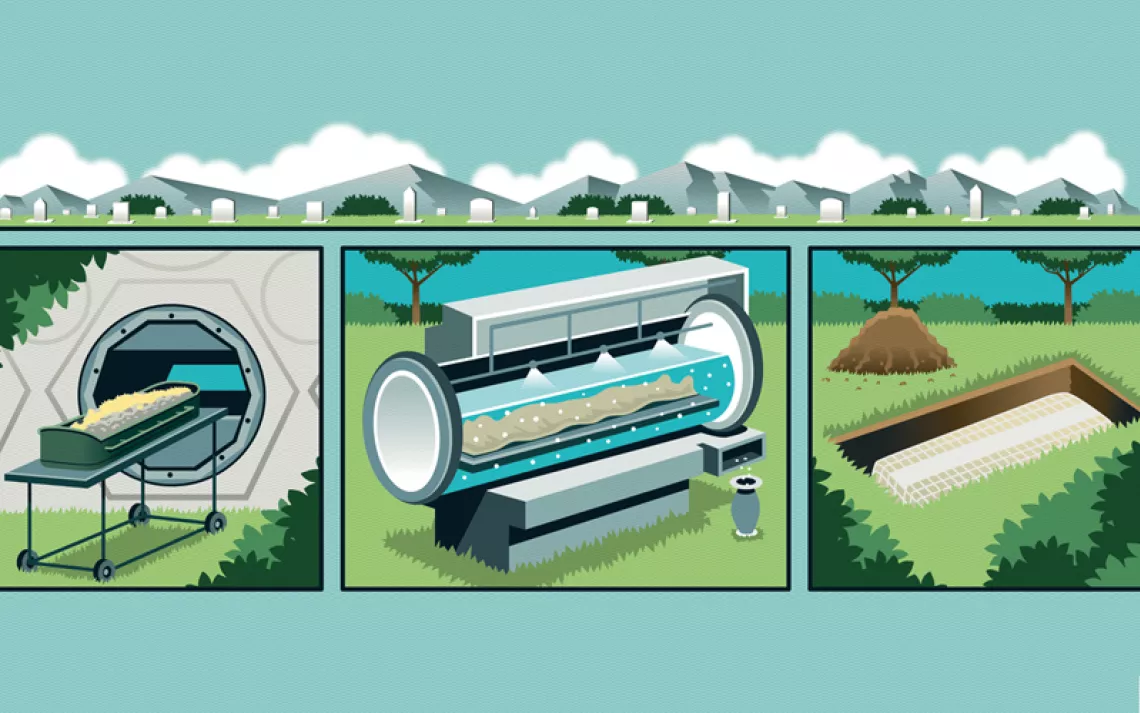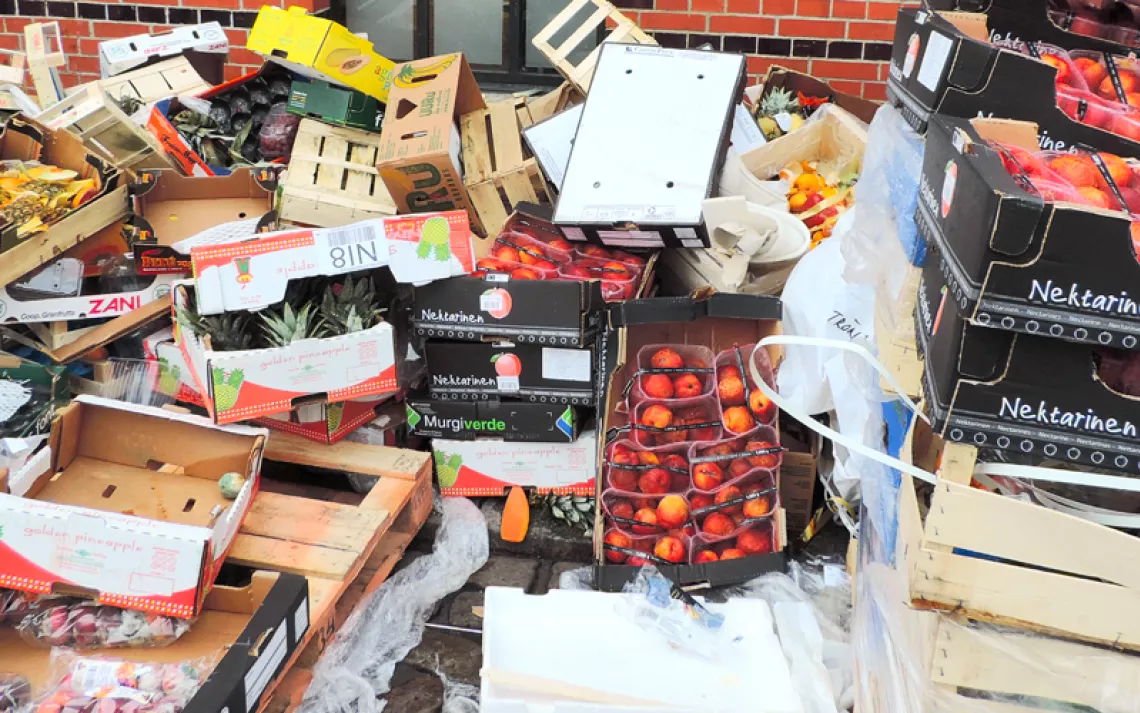Plastic Bottlers Are Lying About Recycling
“100% recyclable”? In your dreams, Coca-Cola.

Photo by kwangmoozaa/iStock
What a wonderful thing it is to purchase an ice-cold bottle of water from a major global brand and see these comforting words of guilt-free consumption right there on the label: “100% recyclable.” Makes the drink go down so much easier, doesn’t it?
Too bad it’s not true.
On the contrary, the product Americans use at a rate of 3,400 every second—100 billion a year—is far more likely to end up in rivers, oceans, roadsides, landfills, and incinerators than inside any sort of recycled product.
On June 16, federal lawsuits were filed by the Sierra Club and a group of California consumers against major bottled water manufacturers Coca-Cola, Niagara, and BlueTriton (a subsidiary of global giant Nestlé). The suits allege that these companies’ labeling and marketing claims about the full recyclability of their beverage bottles are not just a little off, but blatantly false and a violation of consumer and environmental protection laws. They accuse the three global beverage titans of unfair business practices, false advertising, consumer fraud, and violations of state environmental marketing claims laws and Federal Trade Commission regulations.
The plaintiffs argue that these companies must be compelled to admit that their claims of recyclability are false and to end them.
Calling the recycling labels “a misinformation campaign,” Sierra Club executive director Michael Brune said, “These major plastic bottle manufacturers have known for decades that their products aren’t truly recyclable, and the public deserves to know the truth.”
That truth, according to the lawsuits and the studies they cite, is that the US recycling system is currently unable to recycle even a quarter of those supposed 100 percent recyclable bottles and lacks the capacity to recycle more than 12 percent of the bottle caps. Even the portion that does get recycled is never “100 percent recyclable”—about 28 percent is lost to processing or contamination and ends up in landfills.
In a final irony, the polypropylene plastic film labels on which the “100 percent recyclable” claims are printed on the bottles are themselves completely unrecyclable.
FTC Green Guide regulations state that a company can claim that a plastic bottle is recyclable only if recycling facilities for that type of plastic are available to at least 60 percent of the consumers or communities where the product is sold. Under 60 percent, and all recycling claims have to be qualified on the label—such as saying, for example, “This product is recyclable only in the few communities that have appropriate recycling facilities.”
“By that standard, these companies’ ‘100% recyclable’ claims are completely false,” said Sierra Club attorney Marie McCrary of San Francisco law firm Gutride Safier LLP. She said the suits are part of a larger campaign to educate consumers and businesses about recycling myths and the true impact of single-use plastic products on the environment. Accurate information stripped of greenwashing claims, she says, can create demand for—and incentives to bring to market—truly recyclable and sustainable products and materials.
"As long as there are companies making 100 percent recyclability claims that are false, consumers can't make an educated decision in the marketplace, and businesses lack an incentive to create an actually recyclable product," she said.
A Coca-Cola representative said the company did not comment on active litigation, and spokespeople for BlueTriton and Niagara did not respond.
The brands specifically called out in the suits for allegedly deceptive recycling labels include Dasani, Arrowhead, Poland Springs, Ozarka, and Deer Park (in both lawsuits), and Niagara, Costco Kirkland, Save Mart Sunny Select, and Save Mart Market Essentials (in just the consumer class action lawsuit).
Lauren Cullum, Sierra Club California’s Sacramento-based policy advocate, said the suits are part of a broader effort to pick up lost ground after the ambitious California Circular Economy and Plastic Pollution Reduction Act stalled in the legislature in 2020. That act would have reinvented recycling in the state and created a system of producer responsibility, in which manufacturers of wasteful products such as plastic water bottles would have to bear the dollar cost of environmental damage and cleanup—an extension of the “polluter pays” concept in the state that already exists for the oil and gas industry.
Cullum says the costs to California cities to clean up single-use product litter on beaches, parks, and streets is massive: nearly a half billion dollars statewide, according to 2017 data compiled by the Natural Resources Defense Council. Los Angeles alone pays over $36 million a year, equivalent to $9.50 for every man, woman, and child in the city. Long Beach’s per resident cost is $28, and the city of Commerce, with a population of 12,000, pays $890,000 a year for litter cleanup, a whopping $69 for each citizen.
“Government and ratepayers are being swamped,” Cullum said.
Many of the goals of the circular economy and plastic pollution legislation have been resurrected as a citizen voter initiative, which will be on the November 2022 election ballot. Cullum sees the twin lawsuits as a means not only of holding global brands accountable for misinformation about recyclability, but also raising awareness about the need for new laws that rein in plastic pollution and lead to more sustainable products and materials.
“The end goal with all this is to get further and further away from relying on any type of single-use products,” Cullum said. “Any steps in that direction are what we need.”
“People want to make consumer choices that are good for the environment,” says Hoiyin Ip, Sierra Club California zero waste committee co-chair. “If they know the truth, I believe they will change those choices, just as they did with grocery bags. If they are confused or given false information, they end up making choices they might otherwise avoid.”
Judith Enck, a former EPA regional administrator who now leads the Vermont-based Beyond Plastics project, said the lawsuits pull the curtain back on the “abysmal failure” of plastics recycling and the beverage companies’ attempts to market their way out of taking responsibility for the damage their products cause. She puts the goal of the lawsuits in the bluntest of terms:
“We need companies to stop lying.”
 The Magazine of The Sierra Club
The Magazine of The Sierra Club



